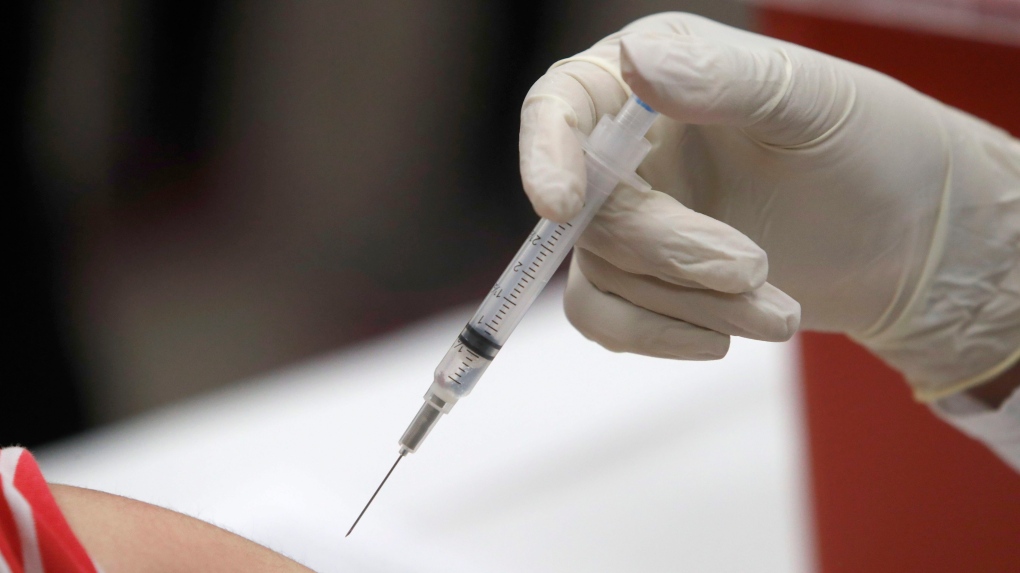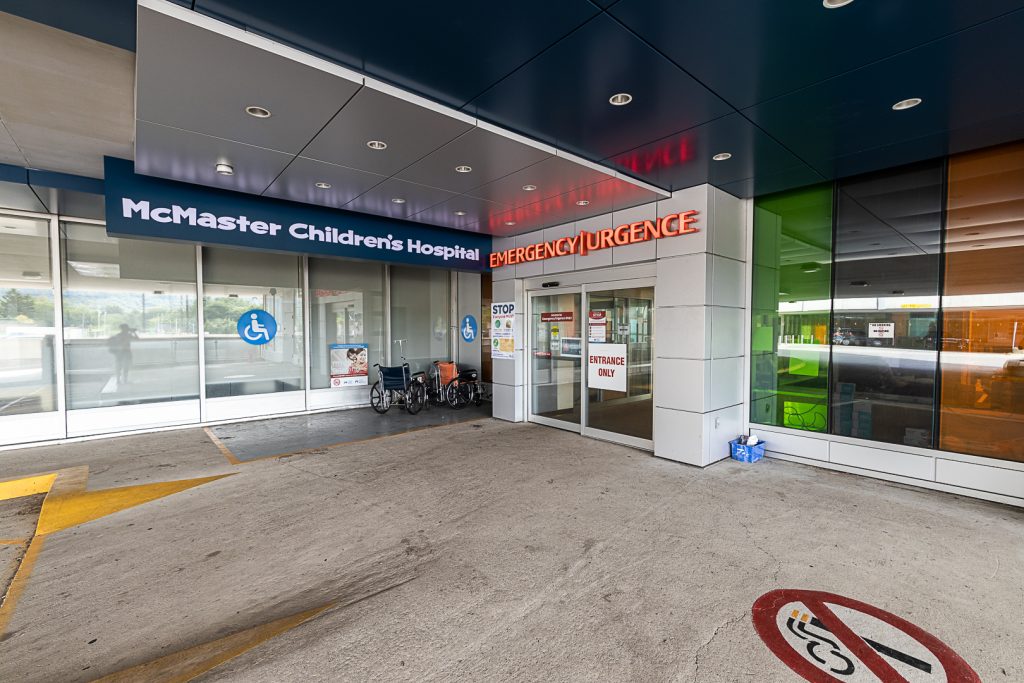
COVID-19 vaccination
Public Health Sudbury & Districts continues to offer the updated XBB.1.5-containing COVID-19 vaccines throughout the month of December. The XBB-containing formulations better protect you against the Omicron XBB subvariant circulating across our communities. See all Public Health clinic opportunities at phsd.ca/COVID-19/vaccine-clinics. In the month of December, appointments and walk-in vaccination opportunities remain available.
Please note, that beginning in January 2024, Public Health Sudbury & Districts will no longer issue monthly COVID-19 vaccine clinic public service announcements, but will continue to post and promote vaccination opportunities on our website and our social media. Information on how to book a COVID-19 vaccine appointment will be shared in January. This approach is intended to align COVID-19 vaccination efforts with other routine vaccination programs, such as measles, rubella, and tetanus. Learn more about immunizations, including how to book appointments.
Additional opportunities to receive a COVID-19 vaccine may also be available through select primary care providers and at participating pharmacies. Visit covid-19.ontario.ca/vaccine-locations for pharmacy locations that offer the COVID-19 vaccine.
As we approach that time of year when we begin to see rising numbers of respiratory illnesses, Public Health Sudbury & Districts continues to recommend that you stay up to date with your respiratory vaccines, including COVID-19 and influenza, to build long-term protection against severe disease and hospitalization.
Public Health Sudbury & Districts provides information about local activity levels of respiratory illness, including COVID-19, influenza, and respiratory syncytial virus (RSV). Public Health also reports data for active outbreaks in the Sudbury and Manitoulin districts. This information is specific to hospitals, long-term care facilities, retirement homes, and congregate living settings.
Seasonal flu vaccine
The seasonal flu vaccine is available at many locations throughout the community, including local pharmacies and health care providers’ offices. Those receiving a COVID-19 dose at public health clinics will be able to receive a flu shot at the same time until December 22, 2023. Visit us online for up-to-date clinic details, including the clinic times, locations, and eligible groups at phsd.ca/COVID-19/vaccine-clinics. Opportunities to access the seasonal flu vaccine may differ throughout our service area each week. If you do not find a clinic in your area, please contact Public Health for more information. High-dose flu vaccine is not available through local Public Health clinics.
Getting a seasonal flu vaccine as soon as it becomes available is important, as it can take up to two weeks for your body to build immunity. Individuals aged 6 months and older can safely get the seasonal flu vaccine immediately before or after receiving a COVID-19 vaccine.
Vaccination opportunities for December 2023
Public Health may occasionally need to cancel clinics due to unforeseen circumstances, including inclement weather events that impact clinic operations. In the event a clinic is cancelled, all clients with a booked appointment will be contacted and will be offered an alternate opportunity. For regular updates, follow us on social media @PublicHealthSD on Facebook and X (formerly called Twitter) and visit us online at phsd.ca.
Friday, December 1
Appointment and walk-in clinics
- Southridge Mall, Sudbury
- COVID-19 vaccine for those 6 months and older.
- Flu shots may be available for those 6 months and older (walk-in only).
Monday, December 4
Appointment and walk-in clinics
- Centennial Arena and Community Centre, Hanmer
- COVID-19 vaccine for those 6 months and older.
- Flu shots may be available for those 6 months and older (walk-in only).
Tuesday, December 5
Appointment and walk-in clinics
- Freshwater Community Church (old Mindemoya Missionary Church), Mindemoya
- COVID-19 vaccine for those 6 months and older.
- Flu shots may be available for those 6 months and older (walk-in only).
Wednesday, December 6
Appointment-only clinics
- Public Health Sudbury & Districts, Chapleau office, Chapleau
- COVID-19 vaccine for those 6 months and older.
- Flu shots may be available for those 6 months and older who have a COVID-19 vaccine appointment.
Appointment and walk-in clinics
- Whitefish River First Nation Community Centre, Birch Island
- COVID-19 vaccine for those 6 months and older.
- Flu shots may be available for those 6 months and older (walk-in only).
Thursday, December 7
Appointment and walk-in clinics
- Chelmsford Arena and Community Centre, Chelmsford
- COVID-19 vaccine for those 6 months and older.
- Flu shots may be available for those 6 months and older (walk-in only).
- Veteran’s Memorial Hall, Killarney
- COVID-19 vaccine for those 6 months and older.
- Flu shots may be available for those 6 months and older (walk-in only).
- Espanola Recreation Complex, Espanola
- COVID-19 vaccine for those 6 months and older.
- Flu shots may be available for those 6 months and older (walk-in only).
Friday, December 8
Appointment and walk-in clinics
- Southridge Mall, Sudbury
- COVID-19 vaccine for those 6 months and older.
- Flu shots may be available for those 6 months and older (walk-in only).
Saturday, December 9
Appointment and walk-in clinics
- Southridge Mall, Sudbury
- COVID-19 vaccine for those 6 months and older.
- Flu shots may be available for those 6 months and older (walk-in only).
Monday, December 11
Appointment-only clinics
- Public Health Sudbury & Districts main office, Sudbury
- COVID-19 vaccine for those 6 months and older.
- Flu shots may be available for those 6 months and older who have a COVID-19 vaccine appointment.
Tuesday, December 12
Appointment and walk-in clinics
- Capreol Community Centre and Arena, Capreol
- COVID-19 vaccine for those 6 months and older.
- Flu shots may be available for those 6 months and older (walk-in only).
- NEMI Recreation Centre, Little Current
- COVID-19 vaccine for those 6 months and older.
- Flu shots may be available for those 6 months and older (walk-in only).
Wednesday, December 13
Appointment-only clinics
- Public Health Sudbury & Districts, Chapleau office, Chapleau
- COVID-19 vaccine for those 6 months and older.
- Flu shots may be available for those 6 months and older who have a COVID-19 vaccine appointment.
Appointment and walk-in clinics
- McClelland Community Centre and Arena, Copper Cliff
- COVID-19 vaccine for those 6 months and older.
- Flu shots may be available for those 6 months and older (walk-in only).
Thursday, December 14
Appointment and walk-in clinics
- Espanola Recreation Complex, Espanola
- COVID-19 vaccine for those 6 months and older.
- Flu shots may be available for those 6 months and older (walk-in only).
Friday, December 15
Appointment and walk-in clinics
- Southridge Mall, Sudbury
- COVID-19 vaccine for those 6 months and older.
- Flu shots may be available for those 6 months and older (walk-in only).
Monday, December 18
Appointment and walk-in clinics
- Edgar Leclair Community Centre and Arena, Azilda
- COVID-19 vaccine for those 6 months and older.
- Flu shots may be available for those 6 months and older (walk-in only).
Tuesday, December 19
Appointment-only clinics
- Public Health Sudbury & Districts, Manitoulin Island office, Mindemoya
- COVID-19 vaccine for those 6 months and older.
- Flu shots may be available for those 6 months and older who have a COVID-19 vaccine appointment.
Wednesday, December 20
Appointment and walk-in clinics
- Centennial Community Centre and Arena, Hanmer
- COVID-19 vaccine for those 6 months and older.
- Flu shots may be available for those 6 months and older (walk-in only).
Thursday, December 21
Appointment and walk-in clinics
- Espanola Recreation Complex, Espanola
- COVID-19 vaccine for those 6 months and older.
- Flu shots may be available for those 6 months and older (walk-in only).
Friday, December 22
Appointment-only clinics
- Public Health Sudbury & Districts, main office, Sudbury
- COVID-19 vaccine for those 6 months and older.
- Flu shots may be available for those 6 months and older who have a COVID-19 vaccine appointment.
Wednesday, December 27
Appointment-only clinics
- Public Health Sudbury & Districts, main office, Sudbury
- COVID-19 vaccine for those 6 months and older.
Thursday, December 28
Appointment-only clinics
- Public Health Sudbury & Districts, main office, Sudbury
- COVID-19 vaccine for those 6 months and older.
Friday, December 29
Appointment-only clinics
- Public Health Sudbury & Districts, main office, Sudbury
- COVID-19 vaccine for those 6 months and older.
Book a COVID-19 vaccine appointment
To book online, visit covid-19.ontario.ca/book-vaccine or call 705.522.9200 (toll-free 1.866.522.9200), between 8:30 a.m. and 4:30 p.m., Monday to Friday. For a list of scheduled clinics, visit phsd.ca/COVID-19/vaccine-clinics.
Additional opportunities may also be available through select primary care providers or at participating pharmacies. Visit covid-19.ontario.ca/vaccine-locations for pharmacy locations that offer the COVID-19 vaccine.
Clinic services
Sensory-friendly service (COVID-19)
Sensory-friendly services may be available, as needed.
Vaccine-to-vehicle service (COVID-19)
Vaccine-to-vehicle is a service available at select mass immunization clinics for individuals who are unable to receive their vaccine within a clinic setting for reasons such as sensory sensitivities, decreased mobility, or other health concerns. An immunizer will come outside to the parking lot to provide the vaccine to individuals in their vehicle. Please note that during extreme weather or extreme cold that your appointment may be rebooked to ensure everyone’s safety.
Appointments for sensory-friendly or vaccine-to-vehicle services can only be booked by phone at 705.522.9200 (toll-free 1.866.522.9200). The call centre is open Monday to Friday between 8:30 a.m. and 4:30 p.m. and is closed on statutory holidays. Booking online for these services is not available.
Questions about vaccination
Learn about the Health Canada approved COVID-19 vaccines.
COVID-19 mRNA vaccines
All Public Health clinics offer mRNA vaccine brands. These vaccines teach your cells how to make a protein that will trigger an immune response. Once triggered, your body makes antibodies which help you fight the infection if the real virus does enter your body in the future.
Examples of mRNA vaccines include Moderna Spikevax and Pfizer-BioNTech Comirnaty. mRNA vaccines remain the recommended vaccine type for COVID-19 and can be used for individuals who have not been previously vaccinated and for those that have received a COVID-19 vaccine previously.
COVID-19 non-mRNA vaccine (Novavax)
Public Health Sudbury & Districts will offer, through an appointment only clinic, the new XBB.1.5-containing non-mRNA vaccine (Novavax) as soon as it is approved by Health Canada. There is no anticipated release date at this time.
Individuals interested in receiving this vaccine are asked to contact Public Health and to be placed on a waiting list. You will be contacted directly when the dedicated clinic will be held.
Eligibility
COVID-19 vaccines
For the 2023 fall respiratory season, the Ontario Ministry of Health, consistent with the National Advisory Committee for Immunizations (NACI), recommends a dose of any XBB.1.5-containing COVID-19 mRNA vaccine for individuals in the authorized age group. Visit covid-19-vaccine-eligibility for information on when you should be vaccinated based on the type of vaccine you should receive, your age, your health status, and if you recently had a COVID-19 infection.
Preparing for a vaccination appointment
All vaccination clinics have COVID-safety measures in place. You must not attend a clinic if you have any symptoms of COVID-19 or if you are in isolation due to a COVID-19 exposure.
- Bring your health card. If you do not have a health card or your health card is expired, bring another form of government-issued photo identification such as a driver’s license, passport, Status card, or birth certificate.
- Eat and drink something before you arrive at your appointment to prevent feeling faint or dizzy while being vaccinated.
- Do not show up until 5 minutes before your scheduled appointment.
- When possible, please limit the number of support people attending a vaccination clinic to one person.
- Dress for the weather, you may have to wait in line if you plan on attending a walk-in clinic.
- Wear a top that allows for easy access to the upper arm such as a loose-fitting top or a T-shirt.
- Wear a medical mask that covers your nose, mouth, and chin. If you do not have a medical mask, pediatric and adult medical masks will be available at the entrance to the clinic.
For more information or if you have questions, please talk to trusted sources such as Public Health immunizers, health care providers, and pharmacists, visit phsd.ca/COVID-19, or call Public Health Sudbury & Districts at 705.522.9200 (toll-free 1.866.522.9200).
Vaccination opportunities: December, 2023 - Public Health Sudbury & Districts
Read More
























